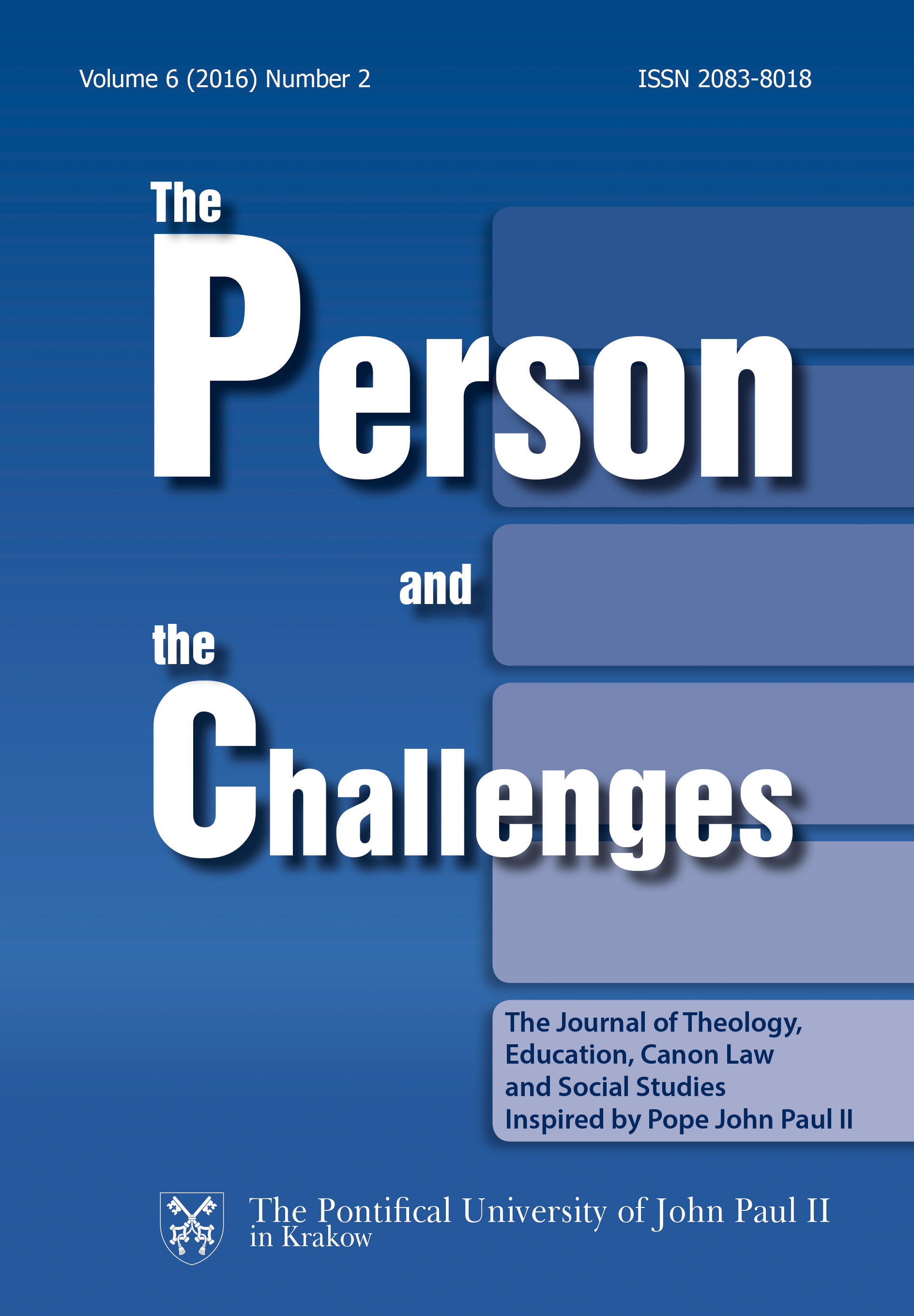Postmodernism and the Church: An Opportunity and a Challenge
DOI:
https://doi.org/10.15633/pch.1893Słowa kluczowe:
Postmodernism, Lyotard, beauty, new evangelization, metanarratives, knowledgeAbstrakt
Postmodernism is, in many respects, a term that has lost most of its cultural and academic cachet. This does not, however, mean that the themes, context, and conditions to which it referred are no longer relevant. In this essay, I will briefly review the latest reports which show a decreasing interest in organized religion, and interpret these results as symptomatic of a larger change in the state of knowledge. To this end, I will examine Jean‑François Lyotard’s analysis of the loss of metanarratives as a way of understanding the implicit rules of the dialogue that occurs between the theist and the atheist or agnostic. Next, I will note the unique capacity of beauty to transcend the diverse language games played by both sides of the conversation. I will conclude by contending that this characteristic of beauty offers a kind of common ground which can be built upon, fostering further dialogue as well as an opportunity for evangelization.Bibliografia
Agger B., Critical Theory, Poststructuralism, Postmodernism: Their Sociological Relevance, „Annual Review of Sociology” vol 17 (1991), p. 105–31.
Anderson P., The Origins of Postmodernity, London 1998.
Aylesworth G., Postmodernism, ed. Edward N. Zalta, The Stanford Encyclopedia of Philosophy (2015), http://plato.stanford.edu/archives/spr2015/entries/postmodernism (1.9.2016).
Barrett W., Irrational Man: A Study in Existential Philosophy, New York 1990.
Benedict XVI, On the Way to Jesus Christ, San Fransico 2005.
Best S., and Kellner D., The Postmodern Turn, Critical Perspectives, New York 1997.
Catholic Church, Catechism of the Catholic Church, Washington, DC 1997.
Catholic News Agency, Cardinal Dolan Sees US as „Mission Territory”, (2012), http://www.catholicnewsagency.com/news/cardinal‑dolan‑sees‑us‑as‑mission‑territory (1.9.2016).
Dewey J., The Middle Works of John Dewey, 1899–1924. Volume 4: 1907–1909, Essays, Moral Principles in Education, Charlottesville, 2003.
Eco U., Postscript to the Name of the Rose, trans. William Weaver, San Diego 1984.
Funk C., and Smith, G., „Nones” on the Rise: One‑in‑Five Adults Have No Religious Affiliation, (2012).
Gadamer H.G., Misgeld, D., and Nicholson, G., Hans‑Georg Gadamer on Education, Poetry, and History: Applied Hermeneutics, Albany 1992.
Hardy T., Art Education in a Postmodern World Collected Essays, Bristol 2006.
John Paul II, Encyclical Letter Redemptoris Missio of the Supreme Pontiff John Paul II, Washington, D.C. 1990.
John Paul II, Fides Et Ratio [Encyclical on the Relationship between Faith and Reason], Boston, 1998.
Lyotard J., The Postmodern Condition: A Report on Knowledge, trans. Geoff Bennington and Brian Massumi, Minneapolis, 1984.
Macallan B., and Jurgens H., Postfoundationalist Reflections in Practical Theology: A Framework for a Discipline in Flux, Eugene 2014.
Mena A., Prayer Breakfast Speakers: US Church Called to Missionary Role, (2014), http://www.catholicnewsagency.com/news/prayer‑breakfast‑speakers‑us‑church‑called‑
to‑missionary‑role (1.9.2016).
Olson C., Abp. Chaput: „America Is Mission Territory—Whether We Recognize It yet or Not…”, (2013), http://www.catholicworldreport.com/Blog/2214/abp_chaput_america_is_mission_territorywhether_we_recognize_it_yet_or_not.aspx (1.9.2016).
Rosemann P., Postmodernism, in New Catholic Encyclopedia Supplement 2012–2013: Ethics and Philosophy, ed. Robert L. Fastiggi, Detroit 2013.
Smith G., America’s Changing Religious Landscape: Christians Decline Sharply as Share of Population; Unaffiliated and Other Faiths Continue to Grow, Washington, D.C. 2015.
Watson R., Rene Descartes, (2015), http://www.britannica.com/biography/Rene‑Descartes (1.9.2015).
Pobrania
Opublikowane
Numer
Dział
Licencja
Prawa autorskie (c) 2016 Timothy Hynes

Utwór dostępny jest na licencji Creative Commons Uznanie autorstwa 4.0 Międzynarodowe.
Autorzy publikujący w czasopiśmie udzielają jego wydawcy zgody o następującej treści:
- Autor zachowuje autorskie prawa majątkowe do utworu, a jednocześnie udziela wydawcy czasopisma zgody na jego pierwszą publikację w wersji drukowanej i wersji online na licencji Creative Commons Uznanie autorstwa 4.0 Międzynarodowe oraz zgody na wykonywanie opracowań, w tym przekładów.
- Autor ma możliwość udzielania zgody niewyłącznej na opublikowanie utworu w wersji, która ukazała się w czasopiśmie (np. zamieszczenia go w repozytorium instytucjonalnym lub opublikowania w książce), wraz z informacją o jego pierwszej publikacji w czasopiśmie.
- Autor może umieścić swój utwór online (np. w repozytorium instytucjonalnym lub na swojej stronie internetowej) jeszcze przed zgłoszeniem utworu do czasopisma.

